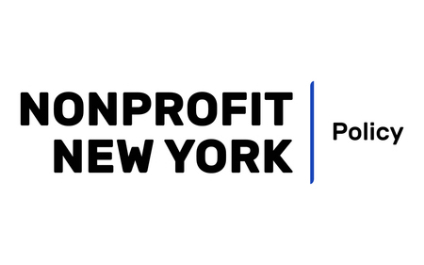In a vote of 96-0, the United States Senate passed the Coronavirus Aid, Relief, and Economic Security Act (CARES Act) (S. 748) providing significant funding for businesses, hospitals, schools, social support programs, and nonprofits. We have received several inquiries asking for an analysis of the relief package and its impact on nonprofits. Below is a summary of key provisions and nonprofit eligibility. The House of Representatives is expected to pass the bill tomorrow. We are grateful to the National Council of Nonprofits for their tireless updates and analysis of the 1,000 page bill.
Emergency Small Business Loans (emergency SBA 7(a) loans)
Provides roughly $350 billion in funding for special emergency loans of up to $10 million for nonprofits with 500 or fewer employees (both full and part time) and small businesses, permitting them to cover costs of payroll, operations, and debt service, and provides that the loans be forgiven in whole or in part under certain circumstances. Title I, Section 1102.
The final bill does not include a provision in earlier drafts that would have disqualified nonprofits that are eligible for payments under Title XIX of the Social Security Act (Medicaid). Nonprofit New York is grateful to Senators Schumer and Gillibrand for removing this provision which would disqualify many vital front-line nonprofits.
Loan Use: Loan funds could be used to make payroll and associated costs, including health insurance premiums, facilities costs, and debt service.
Loan Forgiveness: Employers that maintain employment between March 1 and June 30 would be eligible to have their loans forgiven, essentially turning the loan into a grant. Section 1106.
Industry Stabilization Fund
Sets aside and creates a $425 billion loan and loan guarantee program for “eligible business” which is defined as “a United States business that has not otherwise received economic relief in the form of loans or loan guarantees provided under” the legislation. It is expected, but unclear whether charitable nonprofits qualify under that definition for industry stabilization loans. Mid-sized businesses, including nonprofits, that have between 500 and 10,000 employees are eligible for loans under this provision. There is no loan forgiveness provision, but loans would be charged an interest rate no higher than two percent and would not accrue interest or require repayments for the first six months. Nonprofits accepting the mid-size business loans must retain at least 90 percent of their staff at full compensation. Nonprofit New York is grateful to Senators Schumer and Gillibrand for creating relief options for nonprofits with more than 500 employees. Section 4003.
Economic Injury Disaster Loans (EIDL)
Eliminates creditworthiness requirements and appropriates $10 billion to the EIDL program so eligible nonprofits and other applicants can receive $10,000 checks within three days. Section 1110.
Employee Retention Payroll Tax Credit
Creates a refundable payroll tax credit of up to $5,000 for each employee on payroll when certain conditions are met. The organization had to be an ongoing concern at the beginning of 2020 and experience a revenue drop of at least 50 percent in the first quarter compared to the first quarter of 2019. The availability of the credit would continue each quarter until the organization’s revenue exceeds 80 percent of the same quarter in 2019. For tax-exempt organizations, the entity’s whole operations must be taken into account when determining the decline in revenues. Employers receiving emergency SBA 7(a) loans would not be eligible for these credits. Section 2301.
Charitable Giving Incentive
Includes an above-the-line deduction (universal or non-itemizer deduction that applies to all taxpayers) for total charitable contributions of up to $300. The incentive applies to contributions made in 2020 and would be claimed on tax forms next year. Section 2204. The bill also lifts the existing cap on annual contributions for those who itemize, raising it from 60 percent of adjusted gross income to 100 percent. For corporations, the bill raises the annual limit from 10 percent to 25 percent. Food donations from corporations would be available to 25 percent, up from the current 15 percent cap. Section 2205.
Self-Funded Nonprofits and Unemployment
The bill only reimburses self-funded nonprofits for half of the costs of benefits provided to their laid-off employees. This is explained in a recent blog article. Nonprofit New York will monitor the impact of this provision on New York’s nonprofits. Section 2103
Direct Payments to individuals
Adults will receive $1,200 or less and $500 per child ($3,400 for a family of four) to be sent out in weeks. The amount of the payments phases out based on earnings of between $75,000 and $99,000 ($150,000 and $198,000 for couples).
Expanded Unemployment Insurance
Includes coverage for workers who are furloughed, gig workers, and freelancers. Increases payments by $600 per week for four months in addition to state unemployment programs. Nonprofit New York commends the Senate for specifically including gig workers and freelancers.
Amendments to the New Paid Leave Mandates
The bill lowers the amounts that employers must pay for paid sick and family leave under the Families First Coronavirus Response Act (enacted March 19) to the amounts covered by the refundable payroll tax credit.
Sector specific cash infusions
- $150 billion for a state, tribal, and local Coronavirus Relief fund
- $130 billion for hospitals
- $30 billion for education
- $25 billion for transit systems
Legislative Summaries
Nonprofit New York will continue to monitor the bill’s progress, guidance, and implementation to share with our members.

